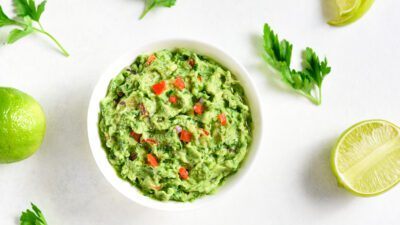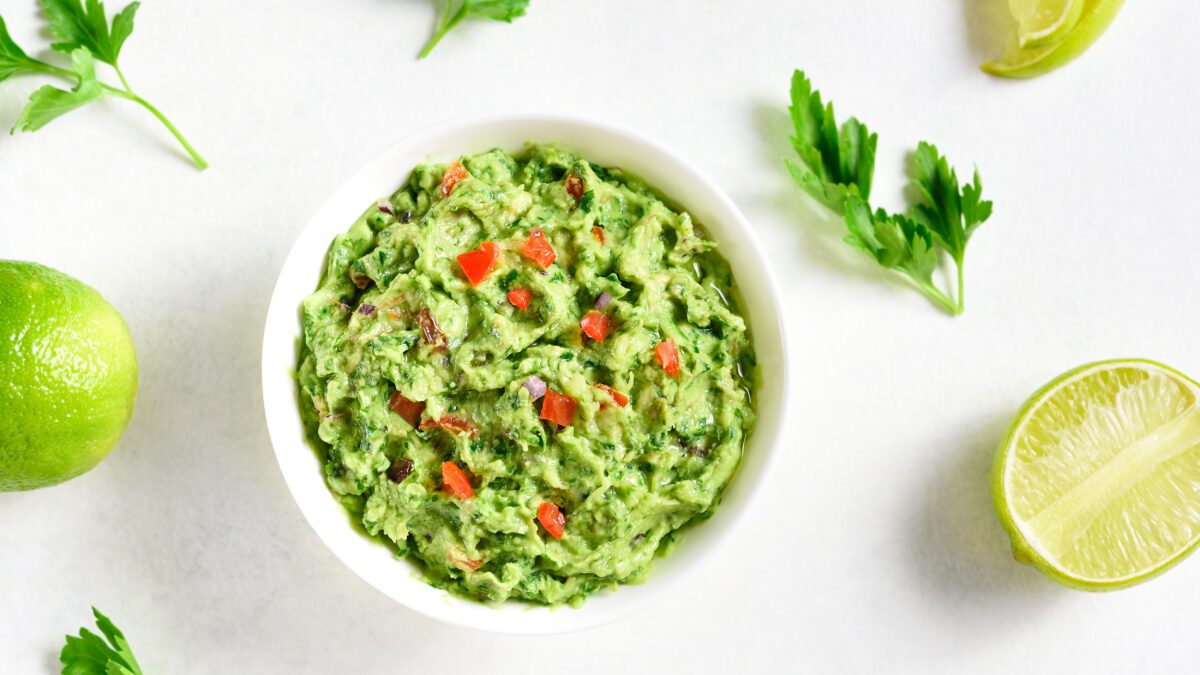



|
HUMMUS |
GUACAMOLE |
|
| Serving size |
1 serving (approx. 100g) |
1 serving (approx. 100g) |
| Calories |
166kcal |
150kcal |
| Protein |
8g |
2g |
| Fat |
10g |
13g |
| Saturated fatty acids |
1g |
2g |
| Mono-unsaturated fatty acids |
4g |
8g |
| Carbohydrates |
14g |
9g |
| Fibre |
6g |
6g |
| Vitamin A |
30IU |
449IU |
| Vitamin C |
0mg |
13mg |
| Folate |
83mcg |
78mcg |
| Potassium |
228mg |
452mg |
Both hummus and guacamole are good sources of dietary fibre and folate. However, we have to hand it to guacamole for its higher content of heart-healthy mono-unsaturated fats, Vitamins C and A, and potassium. High levels of potassium can help reduce the risk of high blood pressure, heart disease or stroke. Folate also helps lower the risk of heart attacks, making guacamole a very heart-friendly food!
Having said that, what the table above does not show you is that hummus is also a good source of essential micronutrients such as copper and manganese, which play important roles in anti-oxidant reactions within the body. So make sure to include both as part of a healthy diet. Just remember that they are high in fat and calories, so watch your portion size or go for reduced fat versions if you are watching your weight.